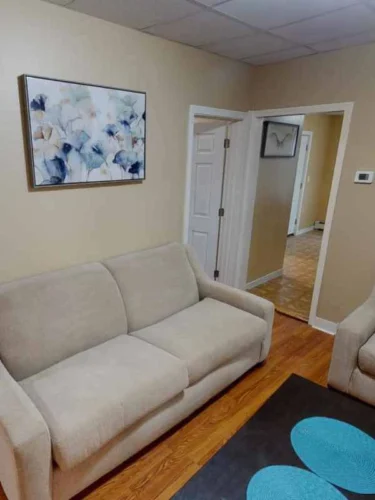
We have learned that educating teens about what not to do is not enough. Drug prevention programs that have had success have gone far beyond teaching young people to say no. They tend to teach the “whys” behind avoiding drugs, offer social skills to refuse drugs, and give opportunities to practice those skills over time. We can draw from these successful programs and from our own life experience, to empower teens to say “No” effectively. Consider these 8 tips as you prepare your teen to face peer pressure. They gain the strength needed to say “No,” even if it may be unpopular with friends.
Listen to your child’s perspective
It will also require us to rethink cultural norms around parenting. The work of raising a child is work, no less valuable than the work performed in a paid job and of extraordinary value when it comes to the impact on the future of society. Additionally, while parents and caregivers bear the primary responsibility for raising children, society as a whole must see itself as sharing in this responsibility – and shaping policy, programs, and individual behavior accordingly. Chasing these unreasonable expectations has left many families feeling exhausted, burned out, and perpetually behind. The work of parenting is essential not only for the health of children but also for the health of society. Additionally, we know that the well-being of parents and caregivers is directly linked to the well-being of their children.
Seek support

Parental peer pressure can significantly heighten stress and anxiety levels among parents. Such feelings can impact the overall well-being of the parent Halfway house and create a tense family environment, demonstrating the emotional toll of striving to meet perceived parental standards. The ramifications of succumbing to parental peer pressure can be profound, affecting the emotional and psychological well-being of both parents and children. Understanding, recognizing, and addressing this pressure is essential for fostering a nurturing environment that prioritizes the genuine needs and happiness of families over societal expectations. When teens make a choice that is right for them and stick with it, they learn to express their values.
Teach Teens Coping Strategies

This type of peer pressure can be especially challenging for children and teens, as they are at a stage in life where they are trying to fit in and establish their identity. Conformity pressure can come in many forms, such as feeling pressured to wear certain clothing brands, have the latest gadgets or toys, or participate in certain activities. Peer pressure will always exist, but it doesn’t have to control your child’s decisions. By fostering open communication, teaching assertiveness, and helping kids reflect on their values, you can empower them to navigate social situations with confidence. On the negative side, peer pressure can lead to bullying, risky behavior, and silence in the face of wrongdoing.
Emergency Preparedness for Kids: Keeping Your Family Safe
In this qualitative study with adolescents in the Canton of Zug, Switzerland, we found that participants often activated their resources, most prominently those available in their social networks, to develop and practice health literacy. Although context is generally considered an important determinant of (adolescent) health literacy, it often remains ambiguously defined. What is more, our findings may serve as a starting point for further investigations of the context which influences health literacy development and practices of adolescents. Study participants already effectively utilized a variety of resources. Thus, increasing awareness of these non-school resources among adolescents through school health services would be worthwhile.
Why Do Some Kids Give in to Peer Pressure?
We can help you find the perfect tutor for your child (all of our tutors are students top UK universities), and lessons take place using our online classroom. We see an average of one whole grade’s improvement (often more) in one term’s worth of lessons with MyTutor and 80% of our students also say that lessons helped improve their confidence. Hutnick says parents deserve patience and compassion from others and themselves, and that when it comes time to make a decision for their children, parents should trust their instincts and allow their beliefs and values to guide them. Rachel Hutnick, a licensed professional counselor at the Center for Counseling and Education in Marlton, says she, too, as seen parents dealing with peer pressure when it comes to their children. Peer pressure strikes at any age, and parents may unknowingly be experiencing it when it comes to making decisions for their children.

On the other hand, girls are more likely than boys to experience pressure about how they look. Positive peer pressure is when peers encourage positive activities or push others to grow in a beneficial way. How a child responds to peer pressure can highlight different traits. For example, natural leaders tend to be less susceptible to negative forms of peer pressure, while followers may have a harder time resisting it. Because avoiding fun or peers altogether what is indirect peer pressure is advice that will never be followed, we need to encourage young people to instead look for like-minded friends or classmates that also avoid unsafe or unwise situations.
- For example, they get to the party and there are no parents present or they are offered a ride with someone that has been drinking.
- The child can then refer to their family rule when refusing to give in to peer pressure.
- This phenomenon (called trolling) is an incredibly pervasive form of negative peer pressure found on social media.
Make Learning Fun: The 10 Best Educational YouTube Channels for Kids
It’s a normal and important part of growing up to pull away from parents as they do so. Teens should never feel the pressure https://ecosoberhouse.com/ to say yes when their gut tells them no. Having the ability to say no and mean it might even be lifesaving. Not so easy when teens feel their peer relationships may be at stake. As a parent, I have felt this way too – blessed to have the privilege of caring for my two children but also constantly wondering if I’m getting it right.
- In general, awareness of how adolescents activate their resources to develop and practice health literacy is important for any professional aiming to improve adolescents’ health and wellbeing.
- But, it’s important to understand that even pressure to do good things can be bad for teens, if they don’t learn to say NO when they need to.
- One of the most common examples of good peer pressure is when students encourage their peers to work hard and do well in their studies.
- Be a positive role model for your child by demonstrating how to follow your own instincts and trust your inner voice.
- For example, if your teens feel uncomfortable going to parties where parents aren’t present, teach them how to politely decline a party invitation, saying no in a way that won’t cause hard feelings.
- If you are a parent, the holiday season presents a particular set of challenges for you and your family.

People commonly think of peer pressure in a negative light, but in reality, it’s not always a bad thing. Sometimes peer pressure is used to positively influence people, such as when teens work toward common goals such as doing well in school or helping out in their community. Learning about acceptable group norms can be a positive part of learning how to live with and socialize with others.
Schreibe einen Kommentar